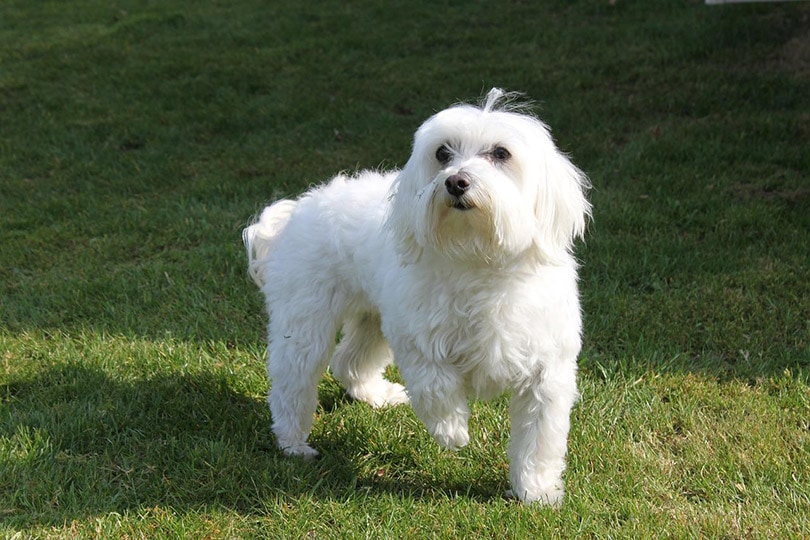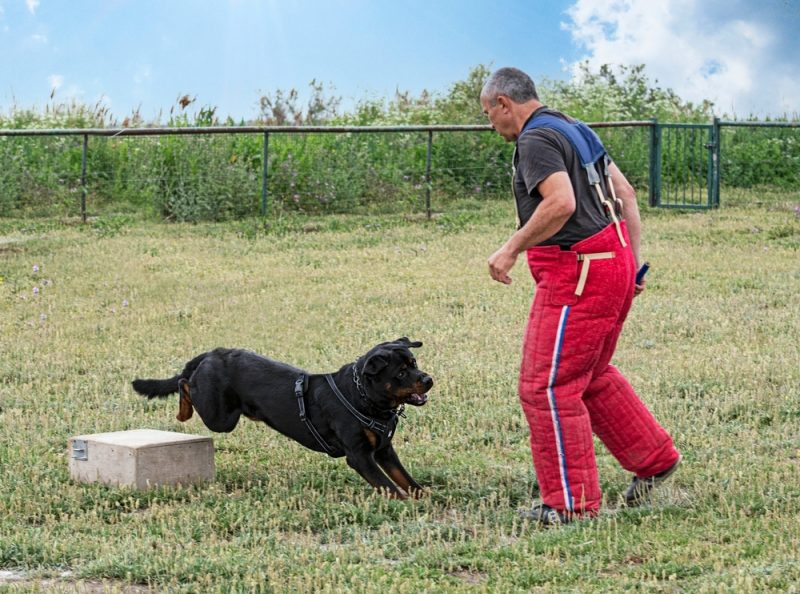When people think of service dogs, they often imagine large breeds like Golden Retrievers or German Shepherds. However, many other breeds can make excellent service dogs, including the Maltese.
These pups are known for their affectionate nature, intelligence, and trainability. They have been bred for centuries to be companion animals, and their small size and hypoallergenic coats make them popular pets for people with allergies or who live in apartments.
But can a Maltese be a service dog? The answer is yes. While they may not have the same physical strength as larger breeds, Maltese have many qualities that make them well-suited to the role of service dog.
In this article, we explore the benefits of training a Maltese as a service dog and what is involved in the process.

Maltese Quick Facts
The Maltese is a small toy dog that originated in the Mediterranean island of Malta. They weigh between 4 and 7 pounds and stand about 7 to 9 inches tall.
This pup is known for their long, silky white coat that does not shed, and they are considered hypoallergenic. They are a friendly, intelligent breed that enjoys the company of people!

What Would Make the Maltese a Good Service Dog?
The Maltese possesses several qualities that make them a good candidate for a service dog. First, their small size makes them an excellent choice for people who need a service dog but cannot handle a larger breed.
Second, their hypoallergenic coat is a significant benefit for people with allergies, as they produce less dander and are less likely to trigger allergic reactions. Maltese dogs are also alert and aware of their surroundings, which is essential for a service dog to detect changes in their owner’s behavior or medical condition.
Third, as intelligent dogs, they are highly trainable and can be taught to perform various tasks. Maltese are loyal and form strong bonds with their owners, making them reliable and dedicated companions.
Lastly, they are adaptable and can adjust to various environments, including crowded public places, airports, and hospitals. These traits collectively make the Maltese an excellent choice for a service dog.
How Can My Maltese Become a Service Dog?
To become a service dog, your Maltese needs to undergo extensive training. The process involves teaching your dog specific skills that will help them assist you with your disability.
- Retrieving items
- Alerting
- Mobility assistance
- Emotional support
The training process typically takes between 18 and 24 months, and it involves various stages, including basic obedience training, socialization, and specialized task training.
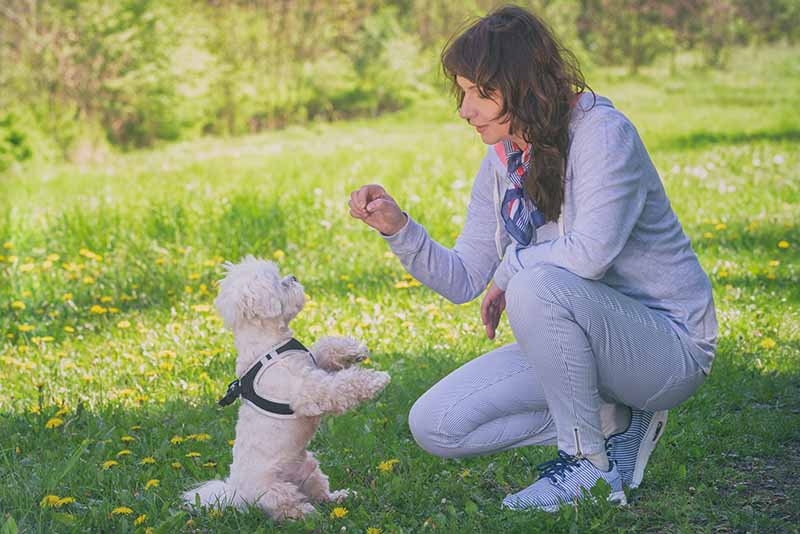
What Other Dogs Can Be Service Dogs?
Any breed can be a service dog! While some breeds are more popular than others, all breeds can undergo training and become service dogs according to the Americans with Disability Act (ADA) guidelines.
What Makes a Good Service Dog?
While all breeds can become service dogs, not every dog may be cut out for this job.
- Trainability and intelligence
- Calmness in different situations
- Alertness
- Properly socialized with strangers
- Properly exposed to various environments
- Overall health
- Loyalty to owners
When you’re training a service dog, it’s best to start when they’re younger. In addition, proper socialization and exposure to a variety of environments are crucial in making an excellent service dog.
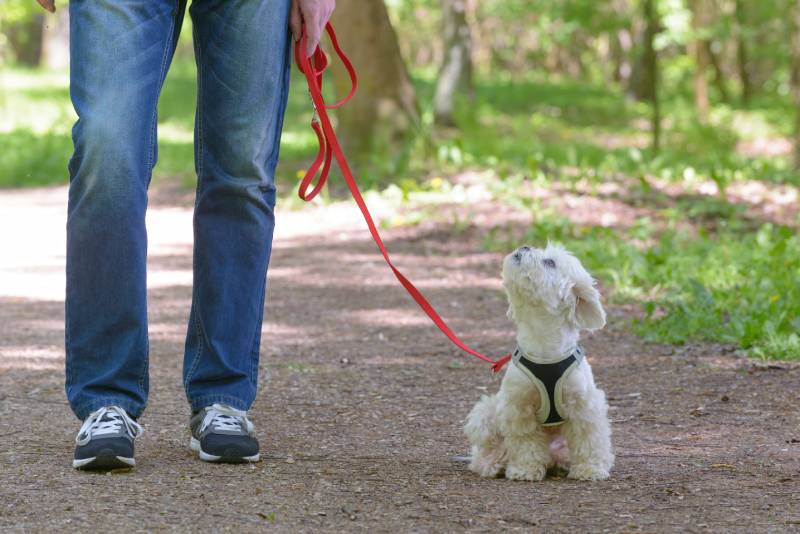
Service Dogs vs. Therapy Dogs
Service dogs and therapy dogs are often mistaken for one another. They may be similar in perception, but they have different roles.
A service dog is trained to perform specific tasks to assist a person with a disability, while a therapy dog provides emotional support to people in hospitals, schools, and nursing homes.
Therapy dogs do not have the same legal rights as service dogs, and they are not allowed in public places where pets are not allowed.
The Importance of Service Dogs
Service dogs play a vital role in the lives of people with disabilities. They help people with physical disabilities, visual or hearing impairments, and various mental health conditions. They provide aid and support, enabling people to live more independently and with greater freedom.
Service dogs can provide a wide range of services, such as assisting with mobility, alerting their owner to important sounds or events, detecting changes in their owner’s medical condition, helping to prevent self-harm, and providing emotional support.
These dogs are also important for their role in raising awareness about disabilities and promoting inclusion in society. By working with their owners in public places, service dogs help break down stereotypes and misconceptions about people with disabilities, and they can inspire others to become more accepting and supportive.
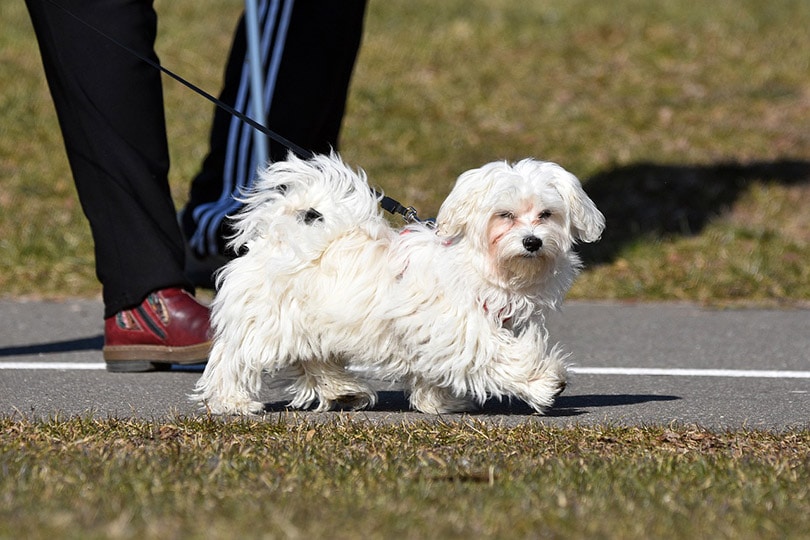
The Legal Rights of Service Dogs
In the United States, service dogs are protected by federal laws, including the ADA and the Air Carrier Access Act (ACAA). These laws provide legal protections for service dogs and their owners, including the right to access public places, transportation, and housing.
Under the ADA, service dogs are allowed to accompany their owners into any public place, including stores, restaurants, and other businesses. Businesses are required to allow service dogs into their facilities and cannot charge extra fees or impose additional restrictions on their presence.
Similarly, under the ACAA, service dogs are allowed to travel on airplanes with their owners, free of charge, and without requiring any special documentation.

Conclusion
While the Maltese may not be the most common breed used as a service dog, they have many qualities that make them well-suited to the role. With their small size, hypoallergenic coat, and intelligence, these dogs can provide valuable assistance to people with disabilities.
If you are considering training your Maltese as a service dog, it is important to work with a reputable training organization that can provide you with the guidance and support that you need. With proper training and socialization, your Maltese can become a loyal and effective service dog, helping you live a more independent and fulfilling life!
Featured Image Credit: TaniaVdB, Pixabay
